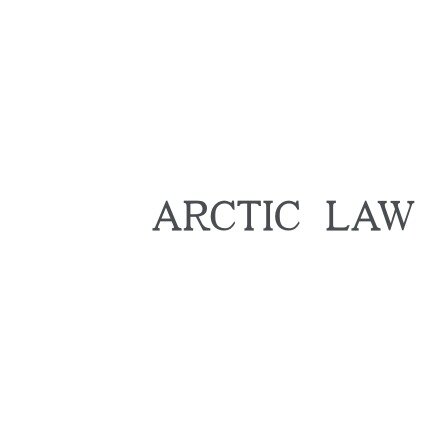Best Energy, Environment & ESG Lawyers in Greenland
Share your needs with us, get contacted by law firms.
Free. Takes 2 min.
Or refine your search by selecting a city:
List of the best lawyers in Greenland
About Energy, Environment & ESG Law in Greenland
Greenland is a territory within the Kingdom of Denmark with a unique blend of local and Danish legislative influence. Energy, Environment, and ESG (Environmental, Social, and Governance) law in Greenland often centers on its vast natural resources, the fragility of its Arctic environment, and the well-being of its communities. The laws are designed to balance economic growth with environmental stewardship, indigenous rights, and sustainable practices as the region faces increasing global interest in mineral extraction, energy projects, and large-scale infrastructure.
Greenland’s legal framework emphasizes environmental protection, sustainable development, and responsible corporate behavior. As climate change impacts become more pronounced and resource exploration grows, the realm of Energy, Environment, and ESG law is becoming increasingly important for residents, businesses, and investors operating in Greenland.
Why You May Need a Lawyer
Engaging a lawyer experienced in Energy, Environment, and ESG issues can help you navigate the complex web of regulations while ensuring compliance and protecting your interests. Common situations where legal support may be required include:
- Applying for mining or energy exploration licenses
- Understanding and fulfilling environmental impact assessment (EIA) requirements
- Navigating cross-border investments in Greenland
- Resolving disputes regarding land use, environmental harm, or resource rights
- Complying with ESG requirements in procurement or business operations
- Negotiating contracts with government entities or indigenous communities
- Addressing pollution, waste management, or remediation responsibilities
A specialized lawyer can clarify Greenland’s specific obligations, help avoid costly errors, and represent your interests in legal proceedings or negotiations.
Local Laws Overview
Greenland’s approach to Energy, Environment, and ESG is shaped by both local and Danish law, but Greenland has its own parliament (Inatsisartut) and significant legislative autonomy. Distinct features include:
- Mineral Resources Act: This act governs mineral exploration and exploitation, including hydrocarbons. It includes strict requirements for environmental protection and benefit sharing with local communities.
- Environmental Protection Act: Regulates pollution prevention, sustainable resource management, and environmental permits. Environmental impact assessments are mandatory for most large projects.
- Home Rule and Indigenous Rights: The Self-Government Act grants significant rights over resource management, with specific protections for local and indigenous populations.
- ESG Regulations: Greenland is increasing its focus on responsible corporate governance, social responsibility, and transparency through guidelines and reporting obligations, especially in resource-driven sectors.
- International Agreements: Greenland is subject to select international environmental treaties through the Kingdom of Denmark, such as relevant Arctic and marine conventions.
It is crucial to understand how these laws interact and what permissions and reporting are required before starting an energy or environmental project.
Frequently Asked Questions
What is required to start a mining or energy project in Greenland?
You must obtain licenses under the Mineral Resources Act and conduct a full environmental impact assessment. Consultation with local authorities and communities is often necessary.
Who enforces environmental laws in Greenland?
The Government of Greenland, particularly its Ministry of Agriculture, Self-Sufficiency, Energy, and Environment, oversees enforcement alongside local authorities.
What is an environmental impact assessment, and when is it needed?
An EIA evaluates a project's potential environmental effects. It is required for most major development projects, especially those involving mining, oil, or infrastructure.
How are indigenous rights protected in resource projects?
Indigenous rights are upheld through mandatory consultations, benefit-sharing agreements, and legal protections under the Self-Government Act and project-specific agreements.
What are ESG obligations for companies in Greenland?
Companies must demonstrate responsible environmental management, social responsibility (such as fair labor and engagement with local communities), and transparent governance policies, particularly in regulated sectors.
Can foreigners invest in Greenland’s energy and minerals sectors?
Yes, foreign investment is welcomed, but investors must follow Greenland’s regulatory framework, which includes licensing, partnership, and ESG requirements.
How can disputes over land or resources be resolved?
Disputes are typically resolved through negotiation, arbitration, or litigation in Greenlandic or Danish courts, depending on the parties and nature of the dispute.
What penalties apply for breaching environmental law?
Penalties can include fines, revocation of permits, remediation orders, or criminal charges for severe breaches.
Are there restrictions on fossil fuel development?
There are specific restrictions and rigorous scrutiny for fossil fuel projects due to environmental concerns, with some moratoriums in place for new offshore oil exploration.
Where can I access Greenland’s energy and environmental regulations?
The legislation can be found through the Government of Greenland’s official publications or by consulting with a Greenlandic legal professional.
Additional Resources
If you need more information or assistance, these resources can be helpful:
- Government of Greenland: Oversees energy, environment, and resource management policies
- Ministry of Agriculture, Self-Sufficiency, Energy, and Environment: Main regulator for environmental and energy matters
- Greenland Mineral Resources Authority: Manages licensing and compliance for mineral and resource extraction
- Kalaallit Nunaanni Inuit Rights Organizations: Support and advocacy for indigenous and local community rights
- Local Chambers of Commerce: Guidance for businesses on fulfilling ESG obligations in Greenland
- International organizations: Such as Arctic Council resources on sustainable development and environmental governance in the Arctic
Next Steps
If you require legal assistance in Energy, Environment, or ESG matters in Greenland, it is important to take clear, structured action:
- Identify your needs: Consider whether you need help with licensing, compliance, project planning, or dispute resolution.
- Consult a specialist: Seek a lawyer experienced in Greenlandic energy and environmental law for guidance tailored to your project or issue.
- Gather documentation: Prepare relevant documents, such as business plans, previous permits, or correspondence with authorities.
- Schedule a consultation: Meet your legal advisor to review your situation, understand your rights, and develop a compliance or defense strategy.
- Stay informed: Laws in Greenland may evolve as the region’s profile grows-keep updated on new regulations or policy changes.
Taking early legal advice reduces risks, streamlines project approval, and ensures you meet Greenland’s robust standards for responsible development.
Lawzana helps you find the best lawyers and law firms in Greenland through a curated and pre-screened list of qualified legal professionals. Our platform offers rankings and detailed profiles of attorneys and law firms, allowing you to compare based on practice areas, including Energy, Environment & ESG, experience, and client feedback.
Each profile includes a description of the firm's areas of practice, client reviews, team members and partners, year of establishment, spoken languages, office locations, contact information, social media presence, and any published articles or resources. Most firms on our platform speak English and are experienced in both local and international legal matters.
Get a quote from top-rated law firms in Greenland — quickly, securely, and without unnecessary hassle.
Disclaimer:
The information provided on this page is for general informational purposes only and does not constitute legal advice. While we strive to ensure the accuracy and relevance of the content, legal information may change over time, and interpretations of the law can vary. You should always consult with a qualified legal professional for advice specific to your situation.
We disclaim all liability for actions taken or not taken based on the content of this page. If you believe any information is incorrect or outdated, please contact us, and we will review and update it where appropriate.
Browse energy, environment & esg law firms by service in Greenland
Greenland Attorneys in related practice areas.
Browse energy, environment & esg law firms by city in Greenland
Refine your search by selecting a city.











